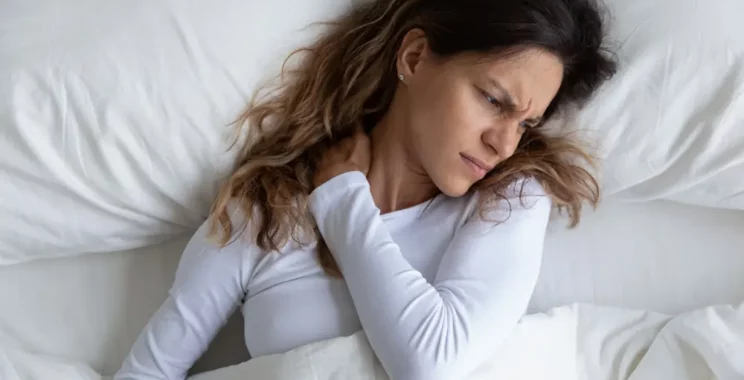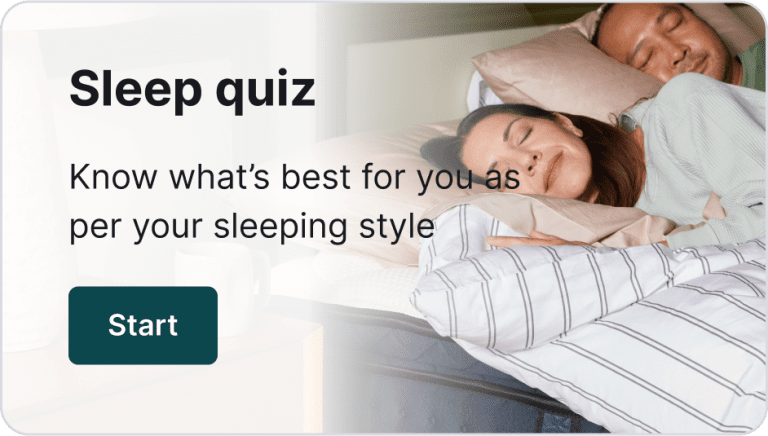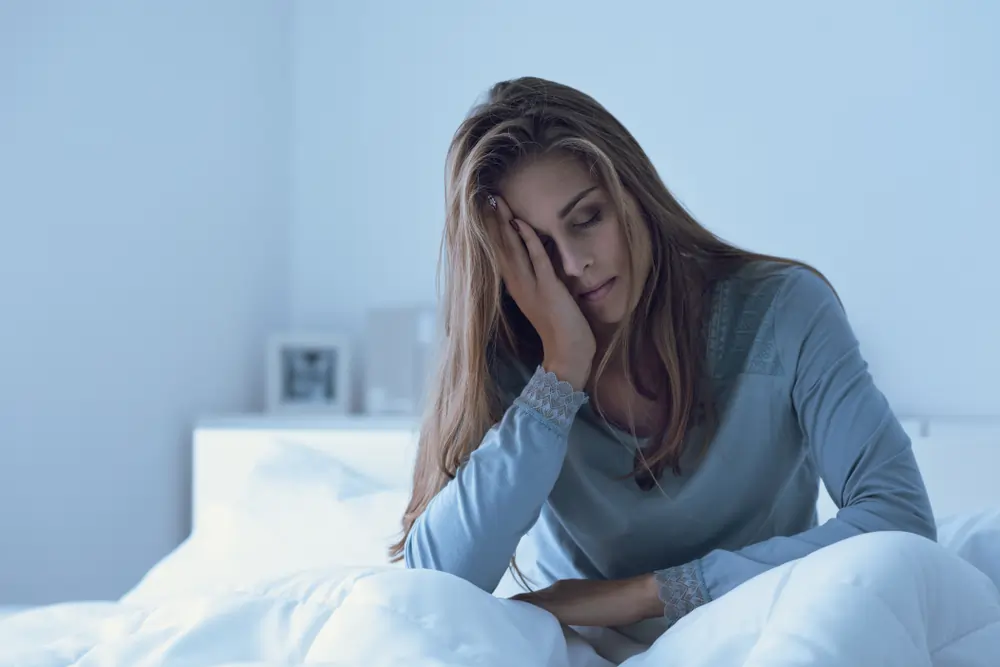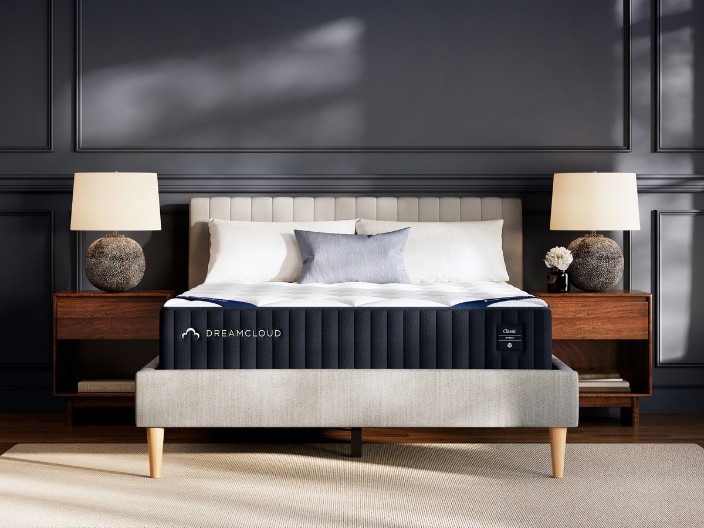Physical Health and Sleep: How Are They Connected
Share
Fact checked
Reviewed by experts
Updated
January 6, 2023
Quick read
5 mins to read
List of Content
Physical health and sleep are profoundly interrelated. Sleep improves a person’s mental and physical capabilities and enables us to regain energy at night for the next day. What are the physical benefits of sleep? With proper and sufficient sleep, you will feel revived and active daily, execute your duties well, and remain healthy and disease-free.
On the other hand, a lack of sleep makes you lethargic and unproductive and invites undesirable health issues and diseases. Diseases like diabetes, obesity, high blood pressure, heart disease, and stroke emerge inside your body. Read this article by Sleep Authority to learn about the drawbacks of not getting enough sleep and tips for better sleep.
How Does Physical Activity Help You Sleep Better
Physical activity helps you fall asleep quicker and more peacefully. A person who works hard, does his daily chores, and exercises will sleep better than one who does nothing (a couch potato). How physical health affects sleep is shown by researchers, who say that exercise helps improve sleep quality and is effective in treating sleep disorders.
Similarly, sleep deprivation and low-quality sleep negatively impact your physical health. Sleep deprivation may have different reasons, such as sleep disorders like insomnia, work hours, family time, and many others that we nowadays prioritize over our sleep. We should not neglect that sleep is as vital as food and water.
Health Benefits of Getting Enough Sleep
What are the physical benefits of sleep? Here are some great health benefits of getting enough sleep:
Get Sick Less Often
Sleep aid the body in producing antibodies and cytokines that fight infections. They assist in boosting the immune system, lessening the likelihood of falling sick.
Stay at a Healthy Weight
Enough sleep lowers ghrelin levels, the hormone which makes us feel hungry, and raises leptin levels, which help us feel full. Consequently, it helps maintain healthy body weight.
Lower Your Risk for Serious Health Problems
Sleep strengthens the immune system and modulates hormone secretion. This prevents serious health complications, including heart disease and diabetes.
Reduce Stress and Improve Your Mood
Sleep aid in producing cortisol, a stress-reducing hormone that reduces stress and improves mood.
Think More Clearly and Do Better in School and at Work
Good sleep promotes better brain activity, increasing cognitive abilities and task performance.
Get along Better with People
Enough sleep will minimize laziness and drowsiness and help you connect better with others.
Make Good Decisions and Avoid Injuries
Good sleep will help you focus while driving and avoid unexpected accidents on the road.
Drawbacks of Not Getting Sufficient Sleep
The drawbacks of sleep deprivation on physical health are as follows:
Obesity
Studies show that sleep deprivation and low-quality sleep increase the risk of obesity. Ghrelin levels rise, and leptin synthesis is halted. As a result, you’ll experience more of a desire to eat.
Heart Problems
Sleep helps reduce blood pressure. Therefore, sleep deprivation encourages higher-than-normal blood pressure, which increases the possibility of heart disease and stroke.
Insulin Management
Your body naturally produces insulin, a hormone that regulates your blood glucose (or blood sugar levels). Lack of sleep impacts your body’s response to insulin, raises glucose levels, and increases the risk of type 2 diabetes.
Immunohealth
Sleep increases the number of T-cells, various cytokines, and other immune-boosting components inside your body. However, sleep deprivation will negatively affect how your immune system fights these infections.
Cognitive Performance
A peaceful night’s sleep improves your cognitive abilities, enabling you to become more creative. However, a sleep-deprived person finds it difficult to focus and work efficiently.
Memory Consolidation
Sleep is necessary to improve memory and the processing of information. Your brain starts to organize and consolidate memories during the slow-wave sleep period. Sleep deprivation is disturbed by this necessary cycle, making it harder to recall even small but significant details.
Mood
Sleep-deprived people find it more difficult to control their emotions, deal with challenging circumstances, and make wise decisions in life. Lack of sleep increases the chance of developing major mental health conditions like panic disorder and depression.
Growth and Development
Teenagers and kids use deep, restful sleep to regulate growth hormone production, manage puberty and fertility, build muscle, and other processes. Lack of sleep hinders a child’s growth, increases anger or sadness, and makes it challenging to concentrate on daily tasks.
Safety
In the US nowadays, driving while fatigued is a big road hazard. Lack of sleep affects concentration power and increases the risk of catastrophic accidents.
Diabetes
Our body’s insulin levels rise when sleep-deprived, which raises our risk of developing diabetes. The most prevalent of these is type 2 diabetes.
Cardiovascular Disease and Hypertension
Sleep deficiency leads to higher blood pressure. According to research, this increases the risk of cardiovascular disease and hypertension.
Immune Function
The immune function works better with the proper secretion of hormones and normal blood pressure. Lack of sleep affects the functioning of the immune system.
Common Cold
People who don’t get enough sleep have a weaker immune system and cannot fight off viruses and other infections, such as the common cold virus.
How Much Sleep Do You Need by Your Age
Here is the table showcasing the required sleeping hours according to age:
| Age group | Recommended Sleep hours |
|---|---|
| Newborn (0–3 months) | 14-17 hours |
| Infant (4–12 months) | 12–16 hours |
| Toddler (1–2 years) | 11–14 hours |
| Preschool (3–5 years) | 10–13 hours |
| School Age (6–12 years) | 9–12 hours |
| Teen (13–18 years) | 8–10 hours |
| Adult (18–60 years) | 7 or more hours |
| Adult (61–64 years) | 7–9 hours |
| Adult (65 years and older) | 7–8 hours |
5 Tips for Better Sleep Health
These are five simple but life-changing tips for better sleep health:
Consistent Sleep Schedule
People who maintain consistency with the sleep wake cycle, especially on weekends, tend to get enough good quality sleep.
Prioritizing Sleep
Sleep should come first in everything. Maintain a healthy sleep pattern while managing your family time, job hours, socializing, and other activities.
Responsible Napping
To ensure you receive adequate sleep each day, take naps. But refrain from taking naps longer than 20 minutes, or you’ll wake up groggy.
Relaxing Bedroom Environment
Your bedroom should have a good sleeping environment, including no bright lights, a white noise machine, and a temperature between 60 and 67 degrees Fahrenheit.
Healthy Habits
Healthy eating habits and regular exercise will help you fall asleep quickly and peacefully.
Conclusion
Physical health and sleep are deeply interconnected because of their effects on each other. How physical health affects sleep, and sleep affects our physical health as well as brain activity, is a vicious cycle. Sleep deprivation can sometimes happen due to an irregular sleeping routine, improper eating, or other reasons. However, if your sleep deprivation continues for a more extended period even after trying your best, you must consult a doctor as soon as possible.
FAQs
Physical health and sleep are interdependent because sleep improves physical health and brain activity. Similarly, physical activity and good health help promote quality sleep.
Health, both physical and mental, is tied to sleep. It boosts brain function and aids in producing growth and daily-necessary hormones.
Yes, getting adequate sleep is as important as food and water. Enough sleep makes you feel refreshed and active every day.
Lack of physical activity makes it difficult to get a peaceful night’s sleep every night, which impacts your physical health.
This website does not offer medical advice nor professional medical services; rather, it is provided solely for educational, informational, and/or entertainment purposes. Individuals seeking medical advice should consult a licensed physician. The information provided should not be used for diagnosis or treatment of any condition, disease, or injury. When you have a medical condition, you should always talk to licensed doctor or other certified medical professional. You should never delay seeking professional medical advice or treatment based on the contents of this website. Call 911 or immediately go to the nearest emergency room if you think you may have a medical emergency. The contents of this website are provided “as-is”, Sleep Authority and its parent, subsidiaries, affiliates, employees, contributors disclaim any warranty of the information contained herein. Please contact using contact form to report any errors, omissions, misinformation, or abuse.
Sleep Authority is brought to you by Resident, the company that brings you Nectar, DreamCloud, Awara, Wovenly, Bundle, Home Well Designed and Level Sleep.




